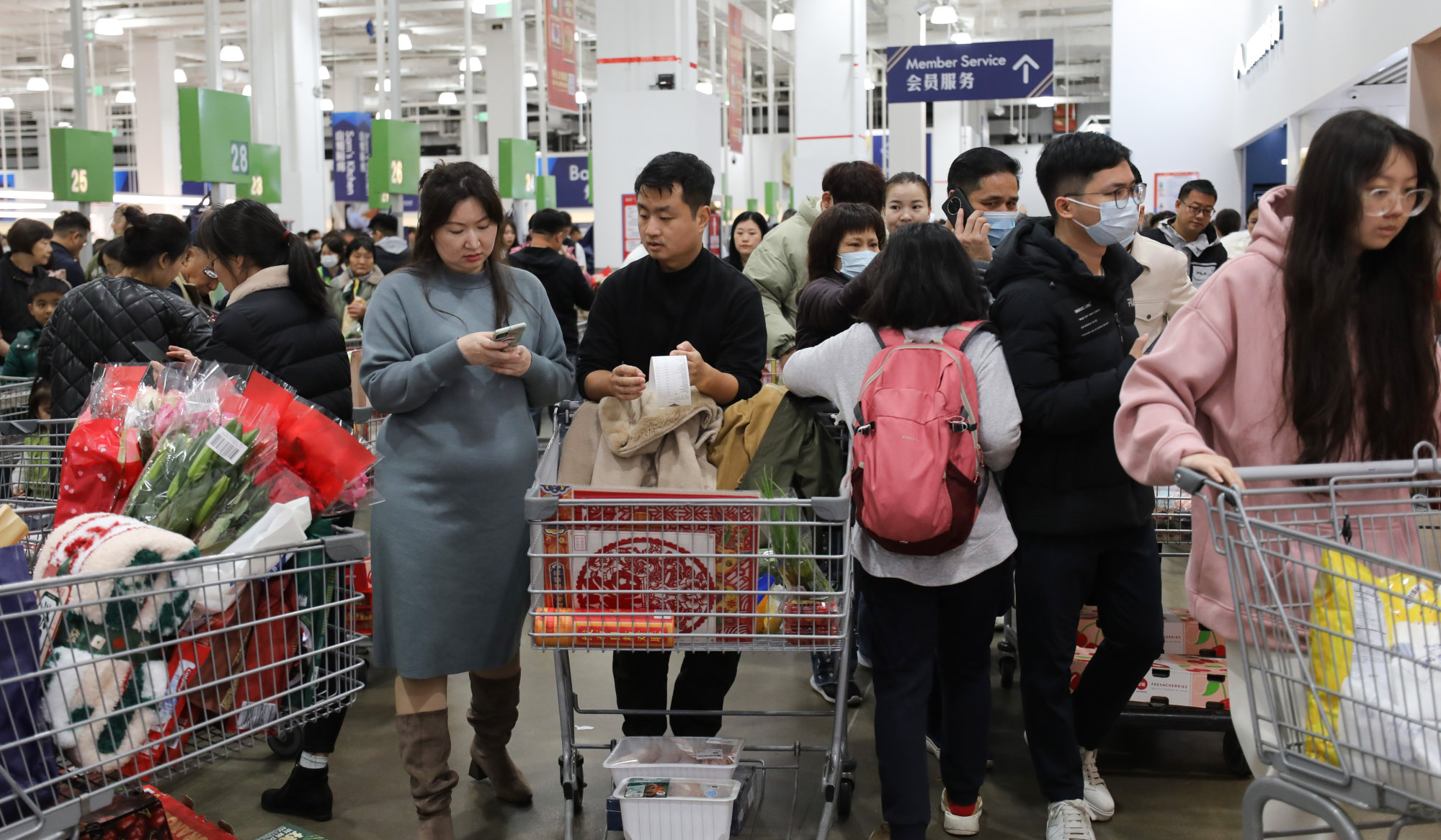


Hongkongers have flocked to the warehouse-style stores in mainland China amid a growing trend of heading north to spend, with many residents bulk-buying everything from tissue paper to snacks and electrical appliances at Sam’s Club.
The membership-only chain of warehouse stores, which is owned by United States supermarket giant Walmart, opened its first outlets in Shenzhen in 1996. The brand now has 44 shops in 25 cities across the country.
“Sam’s Club will continue to build its omnichannel platform, enhance its business model and develop differentiated and quality merchandise for Chinese families,” it said on its website.
“Sam’s Club will invest in both physical clubs and e-commerce to meet various shopping needs, as well as improve membership benefits and value. These efforts seek to make more families feel life is better in the club.”
When contacted by the Post, a company spokesman stopped short of confirming the planned roll-out of the online service in Hong Kong.
“Sam’s is committed to providing members with high-quality and high-value products, and will continue to improve our service capabilities through more and better ways,” the spokesman said in reply to the Post.
The megastore offers a one-year membership for two people worth 260 yuan or a premium membership at 600 yuan with more benefits.
Economist Simon Lee Siu-po, an honorary fellow at the Chinese University of Hong Kong’s Asia-Pacific Institute of Business, said the US retailer’s plans would deal a severe blow to Hong Kong’s supermarket chains and online shopping platform HKTVmall.
“Sam’s Club’s offering is bulk purchase with cheap deals. With online shopping and delivery for Hongkongers, they no longer need to stock up food or necessities in local stores,” he said.
“Supermarkets and online platform HKTVmall will be hard hit. Coupled with internal troubles, this will be an aggression from abroad. I am afraid this will cause a retail crisis in Hong Kong.”
Lee said the only way to safeguard the retail industry was to introduce sales tax.
“With the sales tax, the government can increase its revenue and protect the local industry,” he said.
HKTVmall suffered a drop of 78.65 per cent in net profit to HK$45.3 million (US$5.8 million) last year from HK$212.2 million in 2022.
Announcing the annual results in March, company vice-chairman Ricky Wong Wai-kay predicted a fall in local consumption amid weakened sentiment.
“In parallel with the influence from the external and global economic and political environment, we anticipate a decline in the local consumer market … growth as in the past will be unlikely,” he said.
But the company’s spokeswoman said it welcomed more competitors, saying it would help boost the development of the city’s e-commerce business.
“HKTVmall has been dedicated to promoting the development of Hong Kong’s e-commerce industry and we welcome other supermarkets, retailers and operators to enter or expand in the market,” she said.
Hong Kong’s retail sales dropped 7 per cent in March from a year ago at HK$31.2 billion, its worst performance in two years with the sector hit by a double whammy of rent increases and residents spending across the border during the long Easter holiday.

Liberal Party lawmaker Peter Shiu Ka-fai, representing the retail sector, said Sam’s Club’s planned online shopping in Hong Kong would definitely impact the industry.
He added that the megastore should abide by the city’s regulations about food labelling and safety when transporting goods to Hongkongers.
“Online shopping is not a new thing in Hong Kong. Its products should comply with the city’s regulations,” Shiu said.
Clerk Lorretta Leung, 48, said she would definitely sign up as a member if the company launched online shopping in Hong Kong with a direct delivery service.
“The products are all in jumbo size … with a great variety of imported food and electrical appliances at least one-third cheaper than those in Hong Kong,” said Leung who visited Sam’s Club in Shenzhen for the first time last week and bought more than 2,000 yuan worth of goods with her friend’s membership.
“If there is online shopping for Hongkongers, it will be easy for me to do bulk purchases,” she said. “With its very competitive prices, I can purchase almost everything from its online platform and I don’t need to do it via HKTVmall any more.”